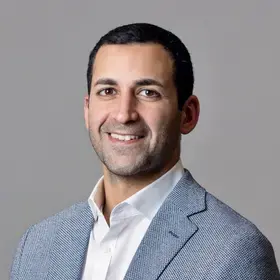At Columbia University’s School of Professional Studies, Ramón Martinez (’18SPS, Narrative Medicine):
• Combined his interest in science and the arts
• Created studies to understand ethnic bias in medical care
• Enhanced his medical school applications
• Jump-started a research career
What drew you to the Narrative Medicine program?
I was born in San Juan, Puerto Rico and grew up in a family of musicians, but somehow ended up in the sciences, often writing poems on the side. Before arriving at Columbia University, I was a Cellular and Molecular Biology major at the University of Puerto Rico.
As an undergrad working with humanities and health professors, I was able to cultivate a deeper understanding of the complex interdisciplinary nature of humanities and medicine.
The final event, so to speak, that drew me in was witnessing the power of narratives through close reading sessions at the Basic Narrative Medicine Workshop at Columbia University during fall 2016. It was a beautiful, embodied experience, seeing how narrative competence paves the way towards a more empathic approach, and how narrative-based medicine can bring forward a better healing process, not only for the patient, but also the doctor. The idea of using stories as a way to expand our notions of traditional medicine was incredible and different.
What kind of narrative medicine practices do you engage in, and what inspires you to do this kind of work?
During my [undergrad] honors thesis, I began noticing that few patients write or get their work published, even though studies have shown it’s a great medium to make sense of the cancer experience. I noticed even more the lack of published illness narratives from Puerto Rico, specifically those related to cancer and written by men. That inspired me to pay attention to the reasons and factors that preclude male patients from sharing their story, which is a topic I am beginning to pursue as a graduate student here at Columbia.
Right now, I am working with a colleague from the Narrative Medicine program to understand how narrative medicine can address the racial and ethnic bias that occurs in the medical context. The idea behind both types of work is better medical competence, and, more specifically, to help clinicians with basic narrative tools that can help them overcome certain socio-cultural biases, and to level the power struggle between doctor-patient interaction in order to improve patient outcome.
What’s next for you?
I’m preparing for my application process next year for medical school. I want to become a teaching- and physician-researcher in the specialty of urology, and I want to work with underrepresented communities.
One of the reasons I wanted a formal education in the field was in order to not only enter medical school with a unique set of skills that will allow me to become a better physician, but also to enable me to engage in research projects that potentially explore the stories of patients, medical students, and doctors in the Puerto Rican medical context. I’ve gained the tools to prepare myself to become a teaching physician who engages in collaborative research projects that are more attuned to the narrative reality of my home territory.


